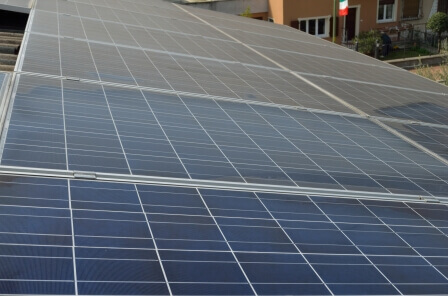4 Factors of Nature That Will Reduce the Effectiveness of Your Solar Panels
 Installing solar panels on your home offers a range of benefits, from enjoying a renewable energy source that keeps bills down to doing your part towards reducing emissions. In fact, many solar panels pay for themselves over time with all the savings they offer!
Installing solar panels on your home offers a range of benefits, from enjoying a renewable energy source that keeps bills down to doing your part towards reducing emissions. In fact, many solar panels pay for themselves over time with all the savings they offer!
However, there are some things to consider when investing in solar panels. One of the most overlooked aspects of owning solar panels is factors of nature. Many naturally occurring factors – from the weather to local wildlife – can impact the effectiveness of your solar panels.
As anyone that installs solar panels on their home wants them working at maximum efficiency, it’s important to know what can cause them to run less effectively so you can be properly prepared and address the issue should it ever arise.
1. Soiling
Perhaps one of the most common issues when it comes to solar panel efficiency is soiling. This takes many forms, including dirt, dust, snow, and any other particles that may cover the surface area of the panel.
Dust and dirt are some of the worst offenders as they can be less obvious but still reduce the overall effectiveness of your solar panels. The worst soiling tends to be based on the climate of the area, such as dry, sandy regions that suffer from high dust pollution.
2. Pests
Two of the biggest pests that reduce the effectiveness of your solar panels are birds (such as pigeons) and squirrels. For instance, pigeons are attracted to solar panels as they are great nesting places, meaning you could end up with several pigeons interfering with your solar panels.
They leave a lot of droppings behind, much of which may cover your panels. As mentioned before, soiling can reduce the effectiveness significantly, making pigeons and their nests a real nuisance.
Similarly, squirrels have a natural tendency to chew, so they are often attracted to the wires of solar panels, causing damage that reduces their effectiveness.
3. Shade
Not everyone is aware of the risks of installing their solar panels in areas that are shaded for portions of the day, but they are significant. The main issue is that shade causes individual solar panels to switch off, resulting in the switched-on panels working extra hard to compensate for the lost energy.
This usually leads to overheating of the unshaded panels, meaning any number of panels can stop working, greatly reducing their effectiveness. Even if the shade doesn’t lead to overheating in the panels, it still means they don’t work when covered, reducing their effectiveness.
4. Reduced Sun
If solar panels are non-tracking (i.e. they don’t follow the movement of the sun) it means they stand to lose effectiveness at certain portions of the day throughout the year. For instance, homes in North America with fixed solar panels should always be south-facing to get as much sunlight as possible during the day.
Furthermore, it’s a good idea to adjust the position slightly twice each year to accommodate the sun’s changed position. The sun sits much higher in the sky during the summer while passing the sky at lower angles during the winter, which can reduce the effectiveness of the panels if not positioned optimally.
Premier Solar Cleaning, LLC is a veteran owned and operated solar panel cleaning company. We provide Commercial Solar Cleaning, Efficiency Checks, and Repair Consultations; as well as Residential Solar Cleaning. Serving all of Southern California with phenomenal solar cleaning that saves you money, we have rapidly become an authority on solar panel cleaning, maintenance, and efficiency. To protect your investment, we use high-quality products that are specifically designed for safely cleaning solar panels. No corrosive chemicals, only the purest reverse osmosis deionized water. We offer one-time cleaning and monthly maintenance programs are available. Call us today at (951) 465-3117.




